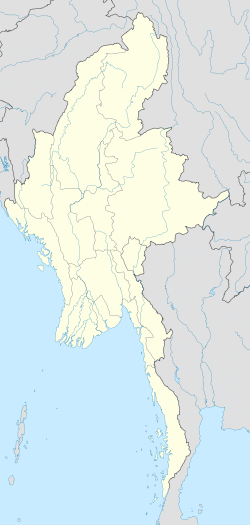| May 2005 Yangon bombings | |
|---|---|
| Part of Internal Conflict in Myanmar | |
| Location | Yangon, Myanmar (Burma) |
| Date | 7 May 2005 3:10 pm [1] (MMT) |
| Target | Civilians |
Attack type | Bombing |
| Deaths | 11 [1] [2] [3] |
| Injured | 162 [2] |
The May 2005 Yangon bombings were nearly simultaneous bomb blasts that killed 11 people and injured 162 on 7 May 2005 in Yangon, Myanmar (Burma). [2] [4]
